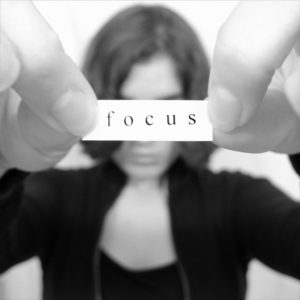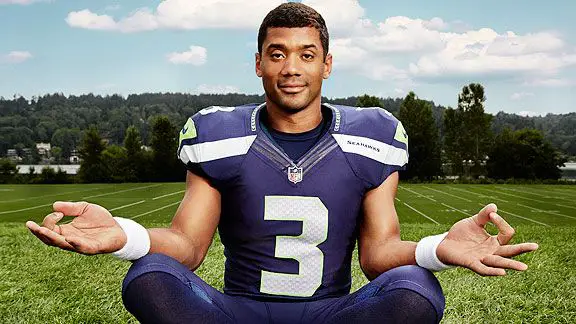Table of Contents

Many athletes have experienced a difficult time and questioned whether to keep going or quit their sport. Others sometimes want to to know more about how to manage performance anxiety or increase confidence. These are a few of the reasons athletes work with a sports psychologist (NOTE: not sports but sports psychology is the correct term). Many people have asked me what I do and what steps to take to become a sports psychologist. I want to outline some basic steps needed for this career and offer a few insights from my own story about the steps I took to gain this title.

*This post may contain affiliate links. As an Amazon Associate we earn from qualifying purchases.
How to Become a Sports Psychologist
Step 1: Get a Degree (Undergraduate)
The first step of many steps you need to take is getting a proper education. Examples of possible undergrad degree areas include kinesiology, psychology, educational psychology or physical education. It is typically not possible to get an undergraduate degree in sports psychology. This is the time to go broader and get a range of courses that would create a good foundation for a graduate degree. My personal undergraduate degree was in education. I believe this degree gave me a great foundation for working with people and helped me develop skills for teaching others.
Step 2: Get a Graduate Degree
No matter where you want to practice sports psychology, you will need a graduate degree. Focus on finding an accredited graduate school because the sports industry and licensing industry will demand that you meet certain criteria with coursework and practicum experiences. If you do not have a degree from an accredited program you run the risk of being denied employment for certain jobs. There are now both masters and doctoral level degree programs in sports psychology. Be aware that in order to call yourself a psychologist, most states will require you to have a doctoral degree. That is because the term “psychologist” is protected. This means if you use this title you have met strict guidelines in coursework, clinical training, and supervision.
Step 3: Decide If You Want to Get a Doctorate Degree
For certain jobs that do not demand a doctoral degree to work with athletes, you will be able to teach sport psychology skills to an individual or athletic teams but you may NOT be able to call yourself a sports psychologist. Instead, you might be called a mental skills trainer or sports psychology consultant. However, if you want to pursue higher positions, like in University settings, or offer some mental health services for athletes in addition to sports psychology skill training, I recommend you consider a doctorate degree. If you choose to seek a doctoral psychology degree make sure to choose a program accredited by the American Psychological Association (APA).
You can choose to become a Doctor of Philosophy (Ph.D.), or a Doctor of Psychology (Psy.D.). What are the differences between the two? Typically, a Ph.D. means having some interest in research and academia. It is helpful training for understanding how to conduct and understand published research. There is still a clinical component as part of training, however.
A Psy.D. program is geared less toward research and possible academic jobs and is more designed to have clinical work as the primary focus.

Step 4: Gain Clinical and Sport Experience
You have to pass a national psychology exam in order to get licensed and be able to practice. This is known as the Examination for Professional Practice in Psychology (EPPP). You also have to obtain supervision of your clinical work for two years as part of the licensing process to become a psychologist. You can do one of those years via internships as part of your doctorate degree. The second year must be completed after you obtain your doctoral degree.
In addition to your schooling, you must also have some experience in sport and it is helpful to have personal athletic experience. You can also have coaching experience, or have worked with athletes through other avenues, such as tutoring, mentoring and athletic training.
Step 5: Certification is Not Licensure
A license allows one to provide clinical and sport psychology services. A certification is simply an indication that you have met criteria for a particular field. A certification can be obtained online or through organizations. A certification may or may not include some university level work. For example, you might be certified to practice hypnosis as part of your overall practice. One can obtain a certification for sport psychology through the Applied Association for Sport Psychology (AASP). I recommend you look for a sport psychologist who has a license to practice psychology and who also has some sport psychology training and experience, possibly demonstrated via a certification. Always ask a potential sports psychology provider about their training and if they have a license and a sport background.
Step 6: Choose an Area of Expertise
Some sport psychologist like to choose a specialization. There are three fields that you can choose from: applied psychology (training athletes and working with them towards performance), clinical psychology (teaching athletes how to deal with stress and helping them with mental health issues, such as anxiety), or academic (teaching sport psychology in universities and doing research on this topic).
Step 7: Find a Job
You can check the websites of some associations such as the APA or AASP. Make use of any sport connections you have made over your years of training. That way, you can inquire about any job openings. You can look at university announcements for sport psychologist positions. Or, check with some teams you would like to work with and inquire about their need for sport psychology services for the athletes
Final Thoughts
Being a sport psychologist requires a lot of work and dedication. It is not something that you should take lightly. It takes years to specialize in this field, especially if you pursue a doctorate degree. After you finish your studies, you must complete an internship. Only then will you be able to register to take the exam that provides you with the license you need to actually practice the job.
My personal road was long and took some interesting turns. I wanted to be a sport psychologist from a very young age and had no idea of the amount of school and training it would take to reach my goal. Some of the best advice I was given was to get a good, overall base of courses in psychology. Make sure to take sport psychology and physical education courses, too. I especially value my training in neuro-psychology because this helped me understand both the brain and cognitive assessments. But this training would not have been enough. It was also my experiences of being a Division I athlete that also really helped. Knowing first hand about the pressures athletes face has been invaluable. Being a good athlete helped me with my doctoral training, too. I knew it would take years to complete my doctoral training but I also had developed the skills to persist through my sport training. It is a great field to work in!
Image Source: 1,2,
